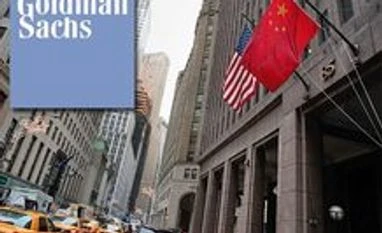The gross domestic product (GDP) growth of the United States and the United Kingdom will exceed expectations, the strategists said, and U.S. stocks look attractive since the Federal Reserve will likely keep short-term interest rates low.
A key trade in 2014 will be to invest in the Standard & Poor's 500 stock index while betting against the Australian dollar, said Noah Weisberger, head of the macro equity team within Goldman Sachs' Global Markets Group. He cited the Fed's stance of keeping policy rates low through "forward guidance" as a reason to buy U.S. stocks.
The strategists also touted stocks within the U.S., Japanese and European banking sectors.
The S&P 500 has hit record highs this year and surged nearly 27 percent. The Fed's $85 billion in monthly purchases of Treasuries and agency mortgages have kept bond yields low, leading investors to seek higher income in stocks.
Forward guidance refers to the language the Fed uses to tell markets how long it will keep short-term rates near zero. The central bank has kept the key federal funds rate near zero since late 2008 to help the economy recover from recession and has promised to keep it there for a while longer, probably until 2015.
Risks remain that economic growth could lag their optimistic forecast, the strategists said. Also, if investors in general begin to expect higher economic growth, bonds could sell off and result in volatility for stocks, they added.
Also Read
The continued easing of risks stemming from the euro zone will be a positive influence on economic growth in developed economies next year, said Francesco Garzarelli, co-head of the global macro and markets research team. He added that inflation will remain "relatively low."
While touting stocks broadly, the strategists recommended betting against commodities such as copper, iron ore and gold. Copper and iron ore prices will suffer from supply growth, said senior metals analyst Max Layton.
Investors should buy Chinese stocks while "shorting" or betting against copper prices, said Kamakshya Trivedi, executive director within the global macro and markets group. Trivedi said that a stable China might be "good enough" next year.
Analysts have warned this year of an end to the "supercycle" of strong commodity performance over the past decade in response to a potential unwinding of the Fed's bond-buying program, along with fragility in the U.S. and European economic recoveries.
)